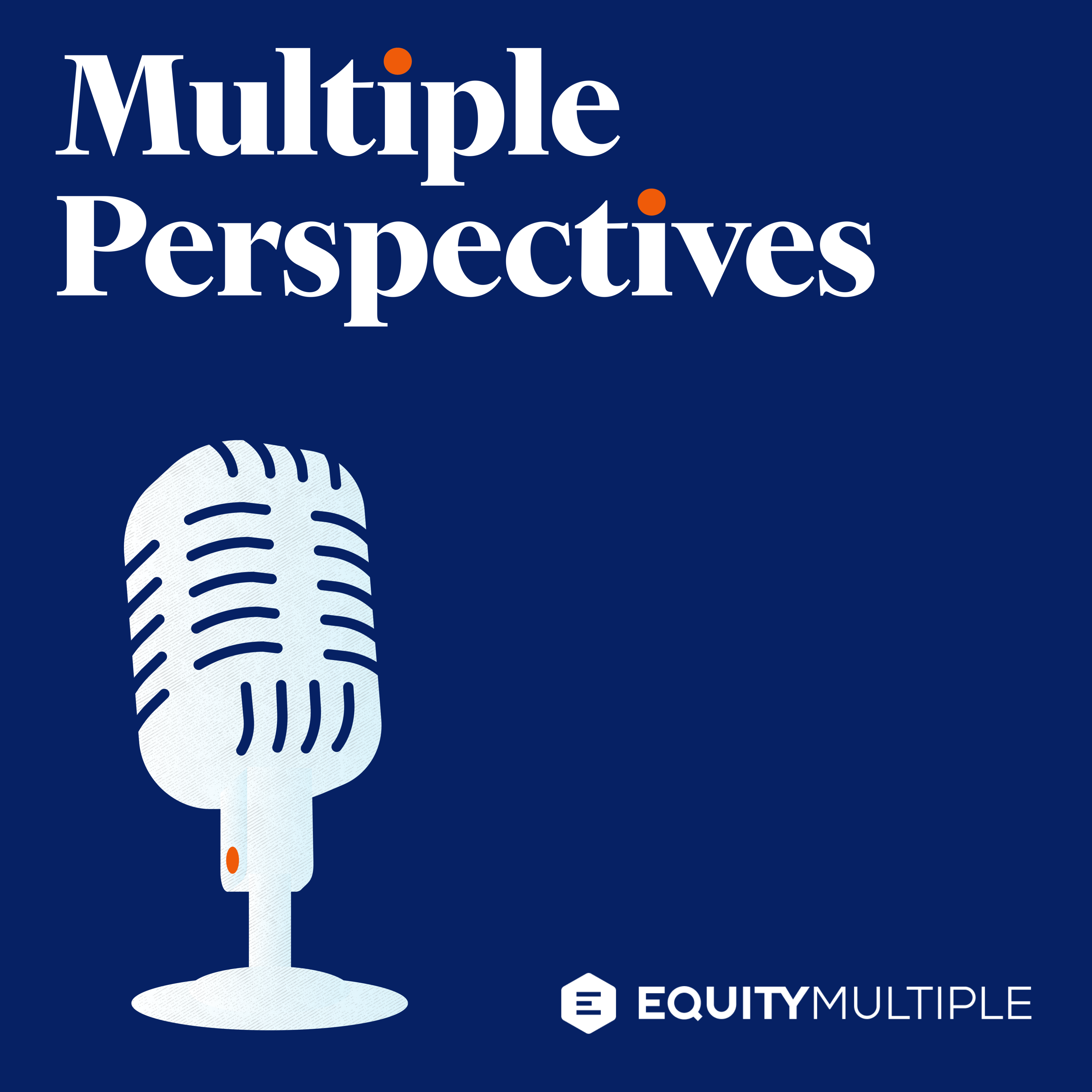Navigating the End of Cycle: Why Smart Investors Are Holding Cash with Jeremy Roll
July 10, 2025

In this episode of Multiple Perspectives, host David Lofgren sits down with Jeremy Roll, President of Roll Investment Group, to discuss the current state of commercial real estate investing and market cycle positioning. Jeremy shares his contrarian perspective on why he believes we're approaching an end-of-cycle reset, the challenges he sees facing multifamily investors, and his personal strategy of holding treasuries while waiting for what he considers better opportunities. Whether you're a seasoned investor or exploring alternatives to traditional markets, this episode offers Jeremy's insights on his approach to protecting capital and positioning for what he anticipates will be the next cycle.
In this episode of Multiple Perspectives, host David Lofgren sits down with Jeremy Roll, President of Roll Investment Group, to discuss the current state of commercial real estate investing and market cycle positioning. Jeremy shares his contrarian perspective on why he believes we're approaching an end-of-cycle reset, the challenges he sees facing multifamily investors, and his personal strategy of holding treasuries while waiting for what he considers better opportunities. Whether you're a seasoned investor or exploring alternatives to traditional markets, this episode offers Jeremy's insights on his approach to protecting capital and positioning for what he anticipates will be the next cycle.
What You'll Learn:
- Why are California real estate markets experiencing low transaction volumes?
- The challenges facing investors who entered the market between 2020-2022
- Why Jeremy is concerned about pivoting to private credit at this time
- The strategy behind holding treasuries despite low yields
- How do you develop independent market cycle opinions?
- What factors should new investors research before investing?
- The significance of Warren Buffett's current cash position
- Jeremy's approach to education and due diligence in alternative investments
Jeremy Roll is the President of Roll Investment Group since 2007, leading alternative investment opportunities in the $500k-$25M range with over $500 million in current assets under management. He is also the cofounder of For Investors by Investors (FIBI), California's largest non-institutional real estate investor meeting series with 12 chapters and over 30,000 members. A staunch advocate for cycle-aware investing, Jeremy has been featured on over 200 podcasts sharing his insights on market timing, due diligence, and risk management. His investment approach emphasizes predictability and lower risk, shaped by his experience navigating the dot-com crash and subsequent market cycles. Jeremy also serves as an advisor for Realty Mogul and has invested in companies including StartEngine, Thrive Market, and ROM Technologies.
Episode Highlights:
- [06:26] - The Private Credit Pivot Problem
Jeremy explains why he's concerned about investors pivoting to private credit and debt investing at what appears to be the end of an economic cycle. He shares his own experience doing hard money lending from 2009 to 2022, stopping just before the first interest rate hike. Jeremy warns that while debt investing may seem safer, values decline dramatically during downturns as uncertainty increases, and loan-to-value ratios can quickly become problematic when property values fall. He cautions that many investors are being reactive rather than proactive, jumping into these alternatives without considering whether they'll perform well through a potential cycle reset.
- [09:42] - Smart Money Strategies for End-of-Cycle Positioning
When asked what smart money does at the end of a cycle, Jeremy outlines his personal strategy of holding treasuries despite not liking the yield. He explains the tax efficiency benefits for California residents and describes his recent small Bitcoin position as a probability-based bet on the four-year cycle pattern. Jeremy emphasizes that investors can either take advantage of end-of-cycle opportunities if they're willing to accept high risk, or stay on the sidelines with cash-like investments. He stresses that all speculative assets, including Bitcoin, silver, and gold, typically crash during end-of-cycle resets, making timing crucial.
- [22:50] - Essential Factors for Developing Market Cycle Opinions
Jeremy provides a framework for new investors to develop their own market cycle opinions rather than simply following others' advice. He recommends talking to experienced investors who have seen multiple cycles, studying stock market charts and PE ratios, and understanding why successful investors like Warren Buffett are holding significant cash positions. Jeremy emphasizes the importance of recognizing that we're potentially in a record-long economic cycle and understanding what that means for future opportunities. He stresses that investors must be 100% educated on current cycle positioning before making investment decisions, as sponsors will always have compelling business plans regardless of market timing.
Episode Resources:
- Multiple Perspectives is brought to you by https://equitymultiple.com/
- Jeremy Roll on LinkedIn
Multiple Perspectives is handcrafted by our friends over at: fame.so